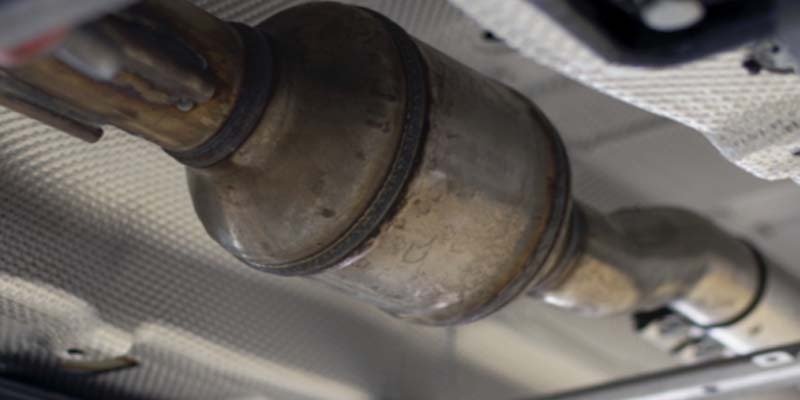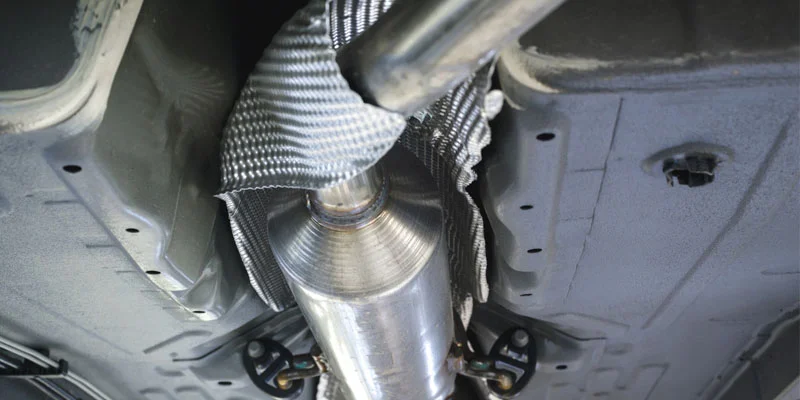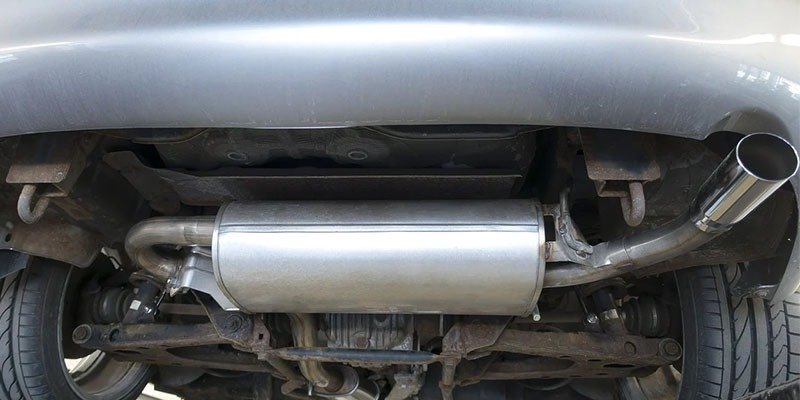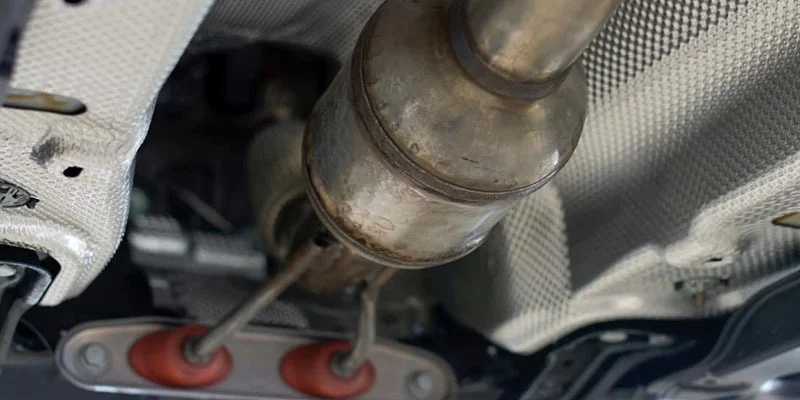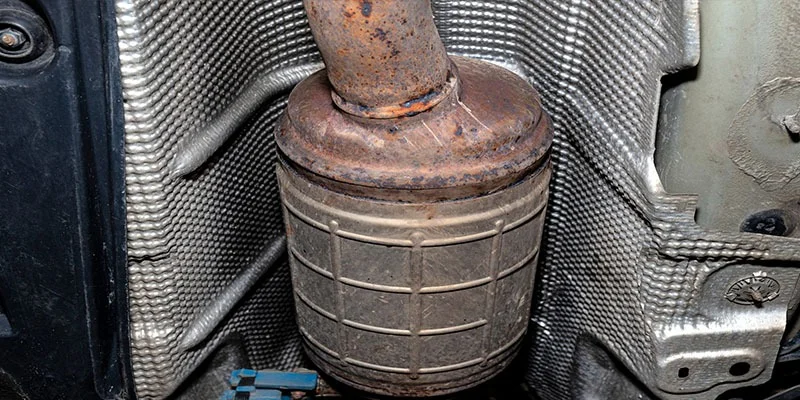There is a need to address the lack of awareness around the topic of catalytic converter temperature and its impact on vehicle emissions. Without this understanding, vehicle owners may unknowingly damage or reduce the efficiency of their catalytic converters, leading to increased emissions and harm to the environment.
In this blog, we aim to provide an in-depth understanding of catalytic converter temperature, including the causes of high temperatures, the temperature range of converters, the dangers of overheating, and tips for preventing overheating.
Temperature Range of Catalytic Converters
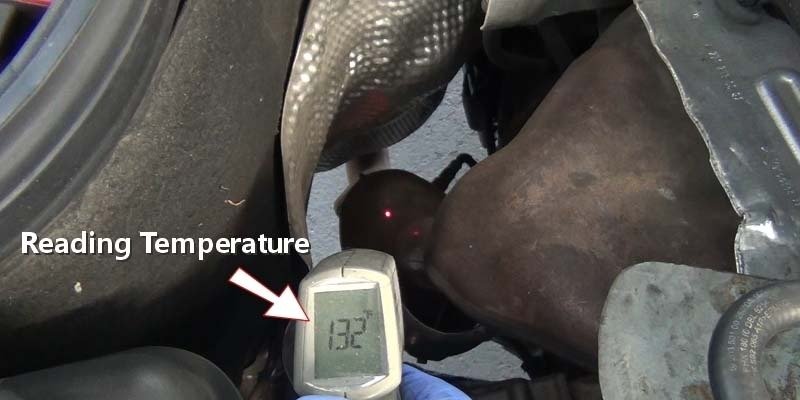
Catalytic converters operate at high temperatures ranging from 400 to 600 degrees Celsius (750 to 1100 degrees Fahrenheit). If the vehicle is under heavy load, the temperature can go up to 1300°F The catalysts inside the converter require these temperatures to trigger the chemical reactions that break down harmful pollutants. However, the temperature should not exceed the limit of 2000°F, as this can damage the converter or cause it to fail.
However, a temperature range below 400 degree Celsius is considered as insufficient to trigger the proper chemical reactions. Hence, the correct level of temperature is the crucial aspect of
Causes of High Catalytic Converter Temperatures
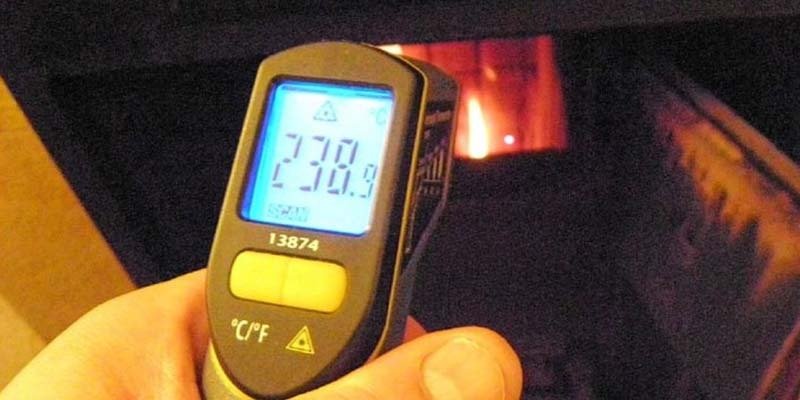
Catalytic converters operate at high temperatures to trigger chemical reactions that break down harmful pollutants in exhaust gases. However, several factors can cause high catalytic converter temperatures, which can lead to damage and reduced efficiency.
1. Rich air-to-fuel ratio
A rich air-to-fuel ratio occurs when there is an excess of fuel in the combustion process. This can cause incomplete combustion with fuel remaining within the catalytic converter. These unburnt gases burns within the catalytic converter increased emissions and high catalytic converter temperatures.
2. Clogged converter
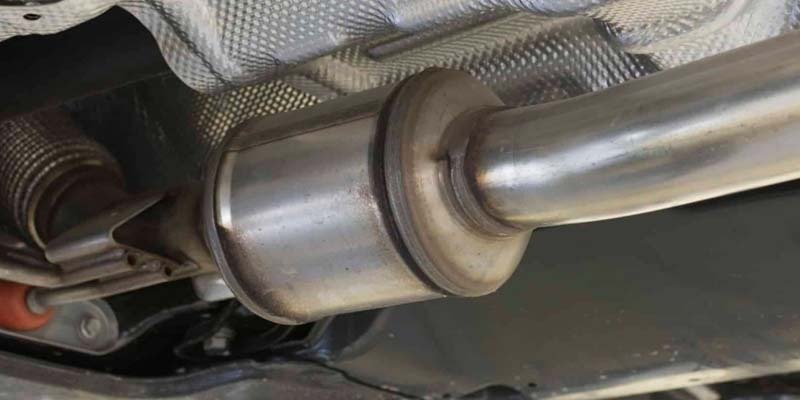
A clogged converter can cause exhaust gases to back up into the engine, leading to high temperatures. A clogged converter can be caused by a damaged core, melted substrate, or contamination from oil or coolant.
3. Malfunctioning oxygen sensor
When an oxygen sensor fails or becomes contaminated, it can send inaccurate readings to the engine’s control system. This can cause the engine to run too rich (too much fuel relative to the amount of air), which can cause the catalytic converter to overheat. Overheating can cause damage to the catalytic converter and reduce its effectiveness, which can lead to increased emissions.
In some cases, a malfunctioning oxygen sensor can also cause the engine to run too lean (too much air relative to the amount of fuel), which can cause the catalytic converter to overheat as well. In either case, it is important to have the oxygen sensor and catalytic converter inspected and repaired
4. Damaged spark plugs
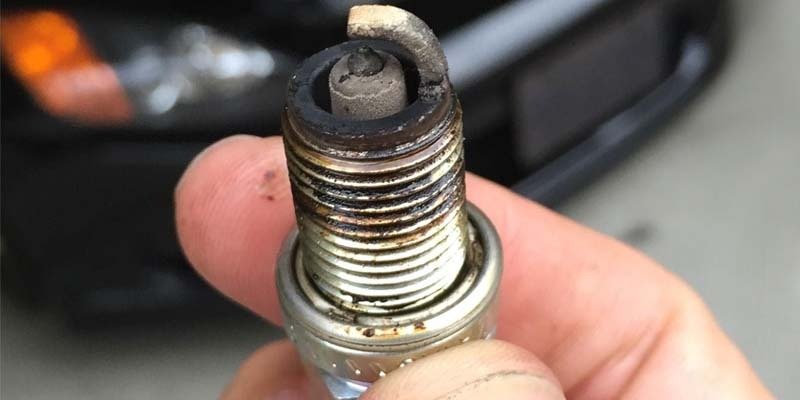
Spark plugs ignite the fuel in the engine’s combustion chamber. Damaged or worn spark plugs can cause incomplete combustion, leading to high temperatures and increased emissions.
Unburned fuel can cause the catalytic converter to overheat, as the excess fuel can ignite and burn inside the converter, causing temperatures to rise beyond normal operating levels. Over time, this can cause damage to the converter and reduce its effectiveness at reducing emissions.
In addition to overheating the catalytic converter, damaged or worn-out spark plugs can also cause a decrease in engine performance and fuel economy. When a spark plug is not functioning properly, the engine may misfire, which can result in reduced power and acceleration.
5. Driving habits
Frequent stop-and-go driving, such as in heavy traffic, and extended idling can cause high catalytic converter temperatures. This is because the engine is working harder, leading to increased exhaust gases and higher temperatures.
Understanding the causes of high catalytic converter temperatures is crucial to maintaining the performance and longevity of the converter. Regular maintenance, such as replacing damaged spark plugs and monitoring driving habits, can help prevent high temperatures and reduce harmful emissions.
Dangers of Overheating Catalytic Converters
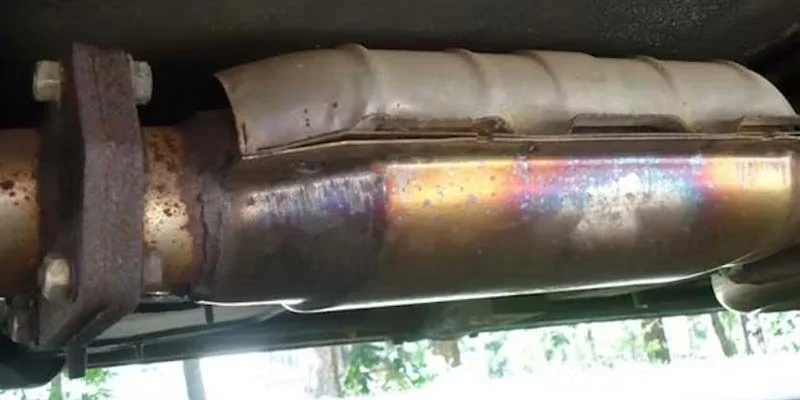
Overheating can cause significant damage to catalytic converters, reducing their performance and longevity. If the converter’s temperature exceeds the upper limit, the precious metals that make up the catalyst can melt or break apart, rendering the converter ineffective. In addition, overheating can cause internal damage to the converter’s ceramic core, leading to clogging and blockages that can reduce the converter’s efficiency.
Furthermore, overheating can increase emissions, leading to environmental harm. A damaged or failed catalytic converter can cause a significant increase in exhaust emissions, leading to air pollution and health hazards.
Catalytic converters operate at high temperatures require proper maintenance to function effectively. Understanding the temperature range of catalytic converters, the causes of high temperatures, and the dangers of overheating is critical to maintaining the performance and longevity of the converter.
What Happens When a Catalytic Converter Gets Too Hot?
Catalytic converters are designed to operate at high temperatures to facilitate chemical reactions that convert harmful pollutants into less harmful emissions. However, if the catalytic converter gets too hot, it can cause several issues that can impact vehicle performance and cause damage to the converter. An overheated catalytic converter can be physically damaged leading to sluggish performance and engine slowdown.
What are the Symptoms of an overheated catalytic converter?
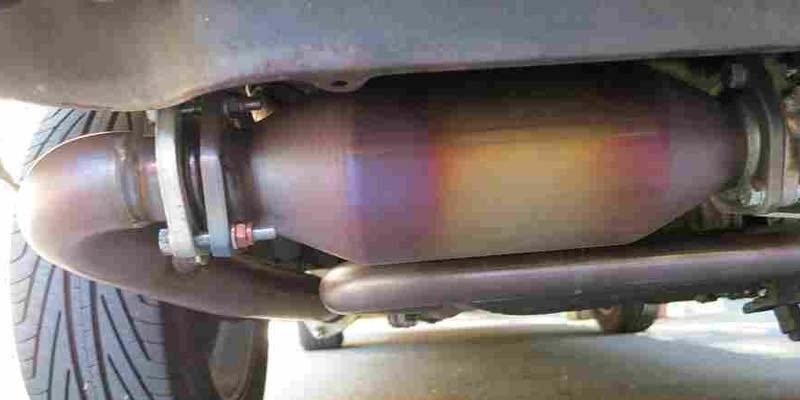
One of the most common symptoms of an overheated catalytic converter is a significant decrease in engine performance. Other signs include a reduction in fuel efficiency, rough idling, and an increase in exhaust emissions. The vehicle’s check engine light may also come on, indicating a problem with the catalytic converter.
What are the Effects of an Overheated Catalytic Converter on Vehicle Performance?
An overheated catalytic converter can have significant effects on vehicle performance. The catalytic converter is a critical component of a vehicle’s exhaust system, responsible for reducing the amount of harmful pollutants that are released into the environment. When the catalytic converter gets too hot, it can cause several issues that can impact vehicle performance.
1. Decreased Engine Power
An overheated catalytic converter can cause a decrease in engine power, making it more challenging to accelerate and maintain speed. The clogged or damaged converter can restrict the flow of exhaust gases, leading to reduced engine performance.
2. Decreased Fuel Efficiency
A clogged or damaged catalytic converter can cause decreased fuel efficiency. If the converter is not working correctly, it can cause an imbalance in the air-to-fuel ratio, leading to incomplete combustion and decreased fuel efficiency.
3. Increased Exhaust Emissions
An overheated catalytic converter can also cause an increase in exhaust emissions. The converter’s inability to convert harmful emissions can lead to increased levels of pollutants being released into the environment.
4. Rough idling
An overheated catalytic converter can cause rough idling, making it more challenging to start the engine or maintain a steady idle. This can be caused by a decrease in engine power, which can lead to instability and vibrations.
5. Check engine light
An overheated catalytic converter can trigger the check engine light on the vehicle’s dashboard. The vehicle’s onboard computer system can detect a problem with the converter and signal the driver through the check engine light.
Potential damage to the catalytic converter
If a catalytic converter gets too hot, it can cause damage to the converter, reducing its lifespan and performance. The heat can cause the converter’s substrate to melt, leading to blockages and decreased efficiency. In some cases, the catalyst can break apart, leading to a complete failure of the converter.
Tips for reducing catalytic converter temperatures:
Here are some of the effective tips for reducing catalytic converter temperatures:
- Avoid prolonged idling: When your engine is running but not moving, it produces more heat than when it’s in motion. If you’re parked and not moving for an extended period, turn off the engine to avoid overheating the catalytic converter.
- Keep your engine well-tuned: A well-tuned engine will operate more efficiently, reducing the amount of unburned fuel that enters the catalytic converter and lowering the risk of overheating.
- Use the recommended fuel: Using the fuel recommended by your vehicle’s manufacturer can help ensure that your engine runs smoothly and reduces the risk of overheating the catalytic converter.
- Replace damaged or worn-out components: Damaged or worn-out components, such as spark plugs or oxygen sensors, can cause the engine to run inefficiently and increase the risk of overheating the catalytic converter.
Maintenance and inspection of the catalytic converter:
Maintenance is the key to maintaining the health of your catalytic converter. Here are some important maintenance tips for the catalytic converter:
- Regularly inspect the catalytic converter for signs of damage, such as cracks or physical deformations.
- Have your vehicle’s emissions control system inspected as part of your routine maintenance schedule.
- Keep the area around the catalytic converter clean and free of debris.
When to replace a damaged or worn-out catalytic converter:
- If the catalytic converter has sustained physical damage, such as cracks or holes, it will need to be replaced.
- If the catalytic converter has become clogged with soot or other debris, it may need to be replaced.
- If the catalytic converter is no longer functioning properly and is not effectively reducing emissions, it may need to be replaced.
- If your vehicle is no longer passing emissions tests, it may be due to a malfunctioning catalytic converter and will need to be replaced.
Conclusion
A catalytic converter is an essential component of a modern automobile’s emissions control system, responsible for reducing harmful pollutants in exhaust gases. While the temperatures inside the converter can vary depending on the operating conditions, it can get as hot as 1,200 degrees Fahrenheit during normal operation.
However, prolonged exposure to high temperatures can cause the converter to overheat, leading to damage and reduced effectiveness at reducing emissions. Proper maintenance and inspection of the vehicle’s emissions control system, including the catalytic converter, is crucial to ensure the efficient and safe operation of the vehicle.

My Name is Christopher Angels, and I am a postgraduate in mechanical engineering. Cars have always excited me as a child, and soon I decided to dive into the world of cars by pursuing mechanical engineering. I also worked as a Mechanic for over 3 years to understand Cars’ anatomy and how each part contributes to its working.
My Name is Christopher Angels, and I am a postgraduate in mechanical engineering. Cars have always excited me as a child, and soon I decided to dive into the world of cars by pursuing mechanical engineering. I also worked as a Mechanic for over 3 years to understand Cars' anatomy and how each part contributes to its working.

